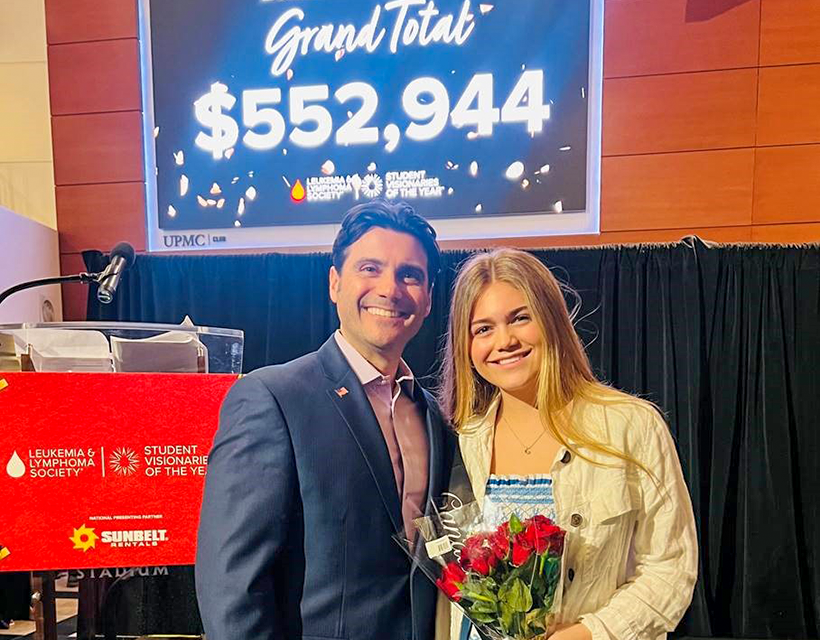PA Federal Business Decisions Volume 17, No. 1
Kelly A. Williams and Henry M. Sneath , Business Decisions Editors (Originally published in the January-May 2012 edition of the Pennsylvania Bar Association’s Civil Litigation Update)
Third Circuit Finds Breach of Fiduciary Duties Even Without Unjust Enrichment
In Lampe v. Lampe, 2011 U.S. App. LEXIS 26014 (3d Cir. Dec. 30, 2011), the Third Circuit Court of Appeals reversed the U.S. District Court for the Eastern District of Pennsylvania and the Bankruptcy Court’s finding that Harold Lampe (“Harold”) had not breached his fiduciary duties to WEL Management, Inc. (“WEL”) as a director and as custodian for L.L., a minor.
Harold and his son, William Lampe (“William”) started a business, Paper Complaints, Inc. (“PCI-1”), in 1985, in which they were the sole shareholders. Between 1985 and 1991, Harold made several loans to PCI-1 to assist the business. William then began a similar business, Printing Consulting, Inc. (“PCI-2”) with his wife, Theresa Lampe. Harold agreed to make several loans to PCI-2 on the condition that the loans were to be repaid. Between 1991 and 2003, Harold made loans to PCI-2 without any documentation. In 1991, William and Theresa formed WEL, in which William, Theresa and Harold were directors. WEL issued one share of stock to Harold, as well as a certificate to L.L., which certified that it had issued nine shares of stock to Harold as custodian for L.L. under the Pennsylvania Uniform Gifts to Minors Act, predecessor to the Pennsylvania Uniform Transfers to Minors Act (“PUTMA”).
In 2003, following William and Theresa’s divorce, Harold and William held a WEL director’s meeting to remove Theresa as president. However, Theresa was not removed as a director. Harold then filed a lawsuit against WEL and PCI-2 in state court for the loans he had made to PCI-2 and for allowing WEL to borrow from Harold’s personal line of credit. William accepted service of process of this action on behalf of both WEL and PCI-2 but failed to take any action to defend either corporation. The lower courts found that Theresa had no knowledge of the lawsuit until after Harold obtained default judgments against PCI-2 in the amount of $1,107,550.09 and WEL in the amount of $1,204,439.12. Harold then executed on property owned by WEL and purchased the property at sheriff’s sale. He then resold the property for $345,000, retaining approximately $320,000 in proceeds.
In 2008, Jestyn Payne (“Payne”) became custodian for L.L.’s shares. Believing that Harold wrongfully deprived L.L. of the value of her shares, Payne sued Harold, William and WEL among others, alleging that Harold breached his fiduciary duties as custodian for L.L.’s shares and as WEL’s director. Two months later, Harold filed for Chapter 11 bankruptcy. Harold listed Payne as a creditor with a disputed claim. Payne then filed an unsecured proof of claim and began an adversary proceeding, setting forth similar allegations as those in Payne’s state court lawsuit. Harold objected to Payne’s proof of claim, arguing that the proof did not include any attachments or factual explanation for the claim. The bankruptcy court upheld Harold’s objections and entered judgment on the adversary complaint in Harold’s favor, which the district court upheld. The bankruptcy court reasoned that Harold was not unjustly enriched by selling the property following execution because Harold’s judgment was based on a legitimate claim against WEL. The bankruptcy court ultimately held that Harold had not breached his fiduciary duties as WEL’s director or as custodian to L.L.
Having found that Payne’s proof of claim was not “based on a writing” and that Bankruptcy Rule 3001(c) was inapplicable, the Third Circuit first determined that Payne’s proof of claim was entitled to prima facie validity.
Turning its focus to whether Harold breached his fiduciary duties, the Third Circuit began its analysis with Section 512 of the Pennsylvania’s Business Corporation Law and a director’s duty of care. According to the court, the duty of care requires one to “discharge duties to the corporation with the same diligence, care, and skill which ordinary prudent persons exercise in their personal affairs; failure to exercise such care renders any corporate director liable for resulting corporate losses.”
The Third Circuit found that the lower courts had misapplied Pennsylvania law in finding that Harold was not unjustly enriched by his actions and therefore, did not breach his duty. While a fiduciary may be unjustly enriched when there is a breach of fiduciary duty, it is not always necessary to show unjust enrichment in every case. The Third Circuit held that a director can breach his duty of care by mismanaging a corporation to its detriment even though the director does not obtain any benefit from his mismanagement. Under Pennsylvania law, a director is liable to the corporation for breaching his duty of care for “losses which were proximately caused by the negligent and wasteful conduct” at issue. Proximate causation is defined as “a wrongful act which was a substantial factor in bringing about the plaintiff’s harm.” According to the court, Harold breached his duty of care as a WEL director by failing to protect WEL’s interest in the lawsuit or in the sheriff sale of the property. By allowing a default judgment to be entered against WEL, Harold contributed to the reduction of the value of the corporation.
Addressing a director’s second duty to a corporation, that of loyalty, the Third Circuit held that a director’s duty of loyalty necessitates that a director not engage in self-dealing but rather must advance the common interests and not his or her own. Thus, a director “cannot directly or indirectly, utilize their position to obtain any personal profit or advantage other than that enjoyed also by their fellow shareholders.”
Applying 15 Pa. Cons. Stat. Ann. § 1728, the Third Circuit found that Harold’s purchase and resale of the property was a transaction subject to section 1728 and the common law’s exacting scrutiny of self-dealing. Directors cannot realize profit in acquiring interests which are adverse to the corporation. While a director can breach his duty of due care without being unjustly enriched, a showing of unjust enrichment may be significant in cases involving a claim of breach of fiduciary duties, especially the duty of loyalty. In order to show unjust enrichment, the following must be established: (1) a benefit was conferred on the defendant; (2) the defendant retained that benefit; and (3) it would be inequitable for the defendant to retain the benefit without paying full value for it. By securing a judgment against WEL, executing on that judgment, acquiring the property at sheriff’s sale, reselling the property and personally taking the proceeds for the resale, Harold breached his duty of loyalty to WEL by retaining the benefit for himself.
Finally, the Third Circuit determined that the PUTMA requires the same duties as those required by a director to a corporation. As a result, the Third Circuit determined that Harold also breached his duties of care and loyalty to L.L. The Third Circuit remanded the case to the lower courts to decide Payne’s relief and dischargeability of Payne’s claim in Harold’s bankruptcy proceedings.
Eastern District of Pennsylvania Applies Daubert Standard in Action Arising from Recall of Space Heaters
In QVC, Inc. v. MJC America, Ltd., No. 08-3830, 2012 U.S. Dist. LEXIS 468 (E.D. Pa. Jan. 4, 2012) (opinion by J. O’Neill), Plaintiff QVC, Inc. (“QVC”) filed suit against MJC America, Ltd., d/b/a Soleus International, Inc. (“Soleus”), seeking damages allegedly stemming from QVC’s voluntary recall of 19,000 space heaters manufactured by Soleus and sold by QVC. QVC asserted that the recall was necessary due to customer reports that the space heaters emitted smoke and sparks, overheated, melted, and/or caught on fire. Soleus countered that the recall was unreasonable. QVC moved to exclude testimony of Soleus’ expert witness regarding the unreasonableness of the recall.
Soleus offered Harry Ehrlich, an engineer with expertise in “industrial and manufacturing areas, human factors, product design, equipment failures, warning,” and product failure investigations, as an expert. In particular, Mr. Ehrlich considered himself an expert in manufacturing processes that involved the crimping of electrified wires in consumer appliances.
Mr. Ehrlich authored two reports for Soleus in which he opined, inter alia, that the cause of the space heaters overheating was an isolated condition relating to the crimping of the wires and that a loose crimp connection was responsible for the failure. As such, Mr. Ehrlich asserted that QVC’s recall decision was arbitrary, “not justified,” baseless, “not substantiated,” and that the recall “failed to comport with the [Consumer Product Safety Commission (“CPSC”)] requirements for a product safety recall.”
QVC moved to dismiss the opinions offered by Mr. Ehrlich as improper legal opinions. Moreover, QVC asserted that Mr. Ehrlich lacked the requisite specialized knowledge to offer his opinion that QVC’s recall decision was overbroad in scope and premature. QVC also maintained that Mr. Ehrlich lacked the requisite expertise to opine that the defects in the space heaters were not “statistically significant” but were merely an “isolated problem.”
In ruling on the motion, the court reiterated the familiar expert witness standard under Rule 702 of the Federal Rules of Evidence and Daubert v. Merrell Dow Pharmaceuticals, Inc., 509 U.S. 579 (1993), providing that expert testimony must be both relevant and reliable. The party offering expert testimony must establish by a preponderance of the evidence that the testimony is offered by a qualified expert, that the opinions are reliable, and that the opinions fit the case.
The court excluded Mr. Ehrlich’s opinion that QVC’s recall was unreasonable, as that opinion intruded on the province of the factfinder. Here, the factfinder was tasked with determining the propriety of the recall. Consequently, Soleus could not offer expert testimony that merely told the factfinder what conclusion to reach. The court similarly excluded Mr. Ehrlich’s opinion that QVC’s letters to the CPSC confirmed that their recall did not comport with the requirements for a product safety recall, as the court concluded that those opinions also constituted inadmissible legal opinion.
QVC also objected to the admission of Mr. Ehrlich’s testimony on product recalls because it asserted that he had no experience or specific knowledge with respect to handling product recalls. The court determined, however, that Mr. Ehrlich’s experience was sufficient to allow him to testify regarding the results of QVC’s investigation into the problem, whether a potential crimping problem was isolated or intermittent, and whether the nature of the defect required further investigation to determine if the problem was restricted to certain lots of the space heaters.
Finally, QVC sought to exclude Mr. Ehrlich’s opinion that the number of defects in Soleus’s shipments were “not statistically significant.” The court agreed that it should be excluded for two reasons. First, Soleus failed to demonstrate that Mr. Ehrlich had sufficient “knowledge, skill, experience, training, or education” to provide testimony on statistical issues that would assist the factfinder. The record showed only that he took courses in probability and statistics 40 years earlier and otherwise had no experience with statistical analyses. Second, the court found that Mr. Ehrlich had failed to explain the methods that he used to arrive at a statistical analysis of the relevant data. Mr. Ehrlich spoke only generally about how quality control analysis incorporates statistics, and his report lacked details about how he conducted his analysis.
Summary Judgment Granted in Favor of Employer of Ponzi Scheme Mastermind
In Belmont v. MB Investment Partners, Inc., No. 09-4951, 2012 U.S. Dist. LEXIS 1656 (E.D. Pa. Jan. 6, 2012) (opinion by J. Schiller), the U.S. District Court for the Eastern District of Pennsylvania granted summary judgment in favor of a corporation, as well as its directors and officers and several affiliated entities, on causes of action for securities law violations, negligent supervision, breach of fiduciary duty, and violations of the Pennsylvania Unfair Trade Practice and Consumer Protection Law (“UTPCPL”). The claims were asserted by victims of a Ponzi scheme masterminded by one of the corporation’s employees.
Mark Bloom (“Bloom”) was employed by MB Investment Partners, Inc. (“MB Investment”), an investment advisory firm. During his employment with MB Investment, Bloom acted as the sole principal and owner of a general partner of North Hills, L.P. (“North Hills”), which was a privately offered investment vehicle for a limited number of accredited investors. Between 2006 and 2008, Plaintiffs Barry Belmont, Philadelphia Financial Services (“PFS”), Thomas Kelly, Jr., Frances Kelly, and Gary Perez invested approximately $4.4 million in North Hills. Plaintiffs Barry Belmont, Thomas Kelly, and Frances Kelly also invested with MB Investment and had an advisory agreement with MB Investment. PFS and Perez never entered into a written advisory agreement with MB Investment.
Bloom was arrested on February 25, 2009 and charged with securities fraud, mail fraud, wire fraud, money laundering, and obstruction of tax laws. According to the Information against Bloom, he defrauded North Hills investors by “soliciting millions of dollars of funds under false pretenses, failing to invest investors’ funds as promised, and misappropriating and converting investors’ funds to his own benefit and the benefit of others without the knowledge or authorization of the investors.” On the same day he was arrested, Bloom was fired from MB Investment. MB Investment ceased operations on June 30, 2009. On July 30, 2009, Bloom pled guilty to all charges in the Information and admitted to operating a Ponzi scheme.
Plaintiffs brought suit against MB Investment, MB Investment’s officers and directors and several other affiliated corporate entities that had an ownership interest in MB Investment. Plaintiffs asserted claims against the officers and directors and the affiliated corporate entities for “control person liability” under Section 20(a) of the Securities and Exchange Act of 1934 (the “Act”) and against MB Investment’s officers and directors for common law negligent supervision. Plaintiffs also asserted claims against MB Investment for violations under Section 10(b) of the Act, breach of fiduciary duty and violations of the UTPCPL.
The court first analyzed the control person liability claim under Section 20(a) of the Act. Section 20(a) imposes joint and several liability on the part of one who controls a violator of Section 10(b) of the Act. To succeed on a claim under Section 20(a), a plaintiff must show that: (1) one person controlled another person or entity; (2) the controlled person or entity committed a primary violation of the securities laws; and (3) the defendant was a culpable participant in the fraud. Plaintiffs contended that Defendants should have discovered Bloom’s fraud if they had been more diligent. The court, however, rejected that argument and concluded that because there was no evidence that Defendants failed to act with the intent to further Boom’s fraud, there was no genuine issue of material fact that would support a jury finding that Defendants were culpable participants in Bloom’s fraud.
The court next turned to the common law negligent supervision claim against MB Investment’s officers and directors. The court recognized that under Pennsylvania law, a negligent supervision claim must generally be against an employer. As Bloom was employed by MB Investment, rather than MB’s officers and directors, the court held that the officers and directors could not be liable for negligent supervision. The court also found that there was no evidence that Bloom’s fraud was reasonably foreseeable. Accordingly, the court granted summary judgment on Plaintiffs’ negligent supervision claim.
With regard to the securities violation claim asserted against MB Investment directly, Plaintiffs argued that MB Investment was liable under Section 10(b) of the Act, both primarily and under the doctrine of respondeat superior. The court quickly dismissed these contentions because the Plaintiffs’ claims were based on fraudulent conduct involving North Hills, an entity unrelated to MB Investment. Thus, the court granted summary judgment on Plaintiffs’ securities violation claim against MB Investment.
The court next analyzed the breach of fiduciary duty claim asserted against MB Investment. The court found that MB Investment did not have a fiduciary relationship with Plaintiffs Perez and PFS because they only invested with North Hills. While MB Investment conceded that it owed a fiduciary duty to Plaintiff Belmont and the Kellys, it asserted that there was no evidence that showed MB Investment should have known Bloom was operating North Hills to steal money from those who invested with North Hills. Accordingly, Plaintiffs could not show that MB Investment acted in bad faith toward them or that MB Investment’s failure to act caused Plaintiffs’ losses. The court agreed and granted MB Investment’s motion for summary judgment as to Plaintiffs’ fiduciary duty claim.
Finally, the court also rejected Plaintiffs’ UTPCPL claim because the conduct of Bloom could not be imputed to MB Investment. Under Pennsylvania law, the imputation doctrine recognizes that principals are generally responsible for acts of agents committed within the scope of their authority. However, under the adverse interest exception to the imputation doctrine, a third party cannot impute an agent’s bad acts to the principal corporation if those bad acts were only in the agent’s self-interest and conferred benefits to the agent rather than the corporation. The court held that because Bloom’s actions were for Bloom’s personal benefit and served only to harm MB Investment, which ceased business operations several months after Bloom was arrested, the adverse interest exception applied and the perpetrated fraud could not be imputed to MB Investment.
In short, the court found that Plaintiffs’ claims were against Bloom and Bloom alone, rather than his employer MB Investment, its officers and directors, or its affiliated entities. Consequently, the court granted Defendants’ motions for summary judgment.
— Contributed by R. Brandon McCullough, Esq., Houston Harbaugh, Pittsburgh, Pennsylvania; bmccullough@psmn.com
Franchisee’s Counterclaims Dismissed for Failing to State a Claim Against Franchisor
In AAMCO Transmissions, Inc., v. Frank Wirth and Auto Center, LLC., 2011 U.S. Dist. LEXIS 140457 (E.D. Pa. Dec. 7, 2011) (opinion by J. Buckwalter), the U.S. District Court for the Eastern District of Pennsylvania analyzed whether Defendants’ counterclaims for fraud, breach of contract and good faith and fair dealing should be dismissed. After finding that Defendants failed to state a claim for relief, the motion to dismiss was granted under Fed. R. Civ. P. 12(b)(6).
Plaintiff AAMCO Transmissions, Inc. (“ATI”) and Defendant Frank Wirth (“Wirth”) entered into a franchise agreement in 2006, under which Wirth was authorized to use the name AAMCO to operate an auto transmission center in Harrisburg, Pennsylvania. In June 2011, after Wirth’s failure to pay promissory notes due under the franchise agreement, ATI terminated the agreement and demanded that Wirth comply with the post-termination clauses. Wirth continued to use the AAMCO trademark and did not make the required payments. ATI sued, setting forth six causes of action including trademark infringement, breach of a franchise agreement, unfair competition, breach of contract, attorneys’ fees and a request for declaratory judgment.
Wirth counterclaimed in August 2011, alleging fraudulent misrepresentation, breach of the franchise agreement, and breach of the implied covenant of good faith and fair dealing. Wirth alleged that ATI’s business model was not profitable, that ATI removed his franchise from its website and that ATI placed competing franchises in his vicinity. The court addressed each of the counterclaims in turn:
1) The fraud component consisted of two parts: fraud in the inducement and fraud in the performance of the franchise agreement. As to fraud in the inducement, the court found that the parol evidence rule would bar recovery where there is a written agreement containing terms that deal with the subject matter, and the agreement represented the entire contract between the parties. In the case at bar, both components were present as specific language in the contract dealt with the issue of profitability in the clause entitled “Risk of Operations,” and a separate clause made it clear that the franchise agreement constituted the entire agreement. Wirth’s attempt to apply a narrow real estate inspection exception to the parol evidence rule was rejected.
2) As to fraud in the performance, the court barred Wirth’s claim under the gist of the action doctrine, reasoning that the claim that the business did not reach a certain level of profitability was based in contract not tort. Therefore, the doctrine which requires that a tort claim be “maintainable only if the contract is ‘collateral’ to conduct that is primarily tortious” would not apply.
After dismissing the fraud claim, the court turned to the breach of contract counterclaims. They noted that the franchise agreement did not require any duty on ATI’s part to include Wirth’s franchise on the national website and only guaranteed “assistance” with advertising. Even assuming a duty on the part of ATI, the court further reasoned that Wirth could not assert a breach of contract claim when he admitted he failed to pay his share of advertising expenses. Therefore, Wirth’s counterclaim for breach of contract was dismissed.
Lastly, the court turned to Wirth’s claim that ATI favored other ATI franchisees and therefore breached its covenant of good faith and fair dealing. Noting that not all contracts in Pennsylvania imply a duty of good faith, the court examined the franchise arrangement which recognized an implied duty of good faith in the context of termination of the franchise agreement only. As Wirth’s good faith claim did not allege breach of the covenant of good faith and fair dealing with respect to a termination but rather with respect to conduct in performing the franchise agreement, the court declined to find a duty of good faith and dismissed the counterclaim.
Given Wirth’s failure to state a claim for relief, the motion to dismiss under Fed. R. Civ. P. 12(b)(6) was granted.
Middle District Applies Two Little-Known Exceptions to Two Well-Known Legal Rules
Judge Caldwell of the U.S. District Court for the Middle District of Pennsylvania recently applied exceptions to two well-known rules of law, in Scott v. LTS Builders, No. 1:10-cv-0581, 2011 U.S. Dist. LEXIS 144626 (M.D. Pa. Dec. 15, 2011) (opinion by J. Caldwell). Plaintiffs were a husband and wife who, while driving through the Poconos and seeing billboards that advertised a new subdivision, pulled over, took a tour, and agreed to buy a lot and to construct a house. Afterwards, they learned that an easement for a power line made a third of the lot unbuildable. Plaintiffs sued the real estate company, builder, and several other Defendants for fraudulently concealing the easement. Judge Caldwell initially granted Defendants’ motions to dismiss, before reconsidering and finding for Plaintiffs in this opinion.
The opinion addressed and applied exceptions to two key rules of law. The first of these is the rule that arbitration agreements are broadly favored. Judge Caldwell noted that while one of the numerous Defendants had an arbitration agreement with Plaintiffs, the rest did not, and he predicted that in this circumstance, Pennsylvania courts would find that sending one Defendant to arbitration, while hearing claims against the rest in court, would result in a “protracted, piecemeal resolution of the dispute.” Thus, he denied a motion to dismiss in favor of arbitration and kept all parties in court.
The second key legal rule addressed in Scott is the rule that courts will not hear parol evidence when interpreting a contract with a merger clause. Judge Caldwell found that in real estate inspection cases like the one before him, Pennsylvania law does not flatly bar parol evidence. Rather, the law balances what plaintiffs knew or should have known from their initial inspection of the property, against the extent and strength of the merger clause in the real estate contract. Here, Plaintiffs were allegedly told during their initial walk-through of the lot that there were no easements and that the house could be sited in a particular way, before they later signed a contract (with merger clause) and received documents that, if read very carefully, might have revealed that the easement precluded them from siting the house in the way that they wished. In similar cases, Pennsylvania courts had refused to exclude parol evidence of fraud, and Judge Caldwell did likewise here.
–Contributed by Jason A. Spak, Esq., Houston Harbaugh, PC, Pittsburgh, Pennsylvania; jspak@psmn.com
Unsteady Footing: Commercial Breach of Contract Claim and Tort Claims Don’t Mix in Flooring Tile Case
In Laufen International, Inc. v. Larry J. Lint Floor & Wall Covering, Co., Inc., No. 2:10-cv-199, 2012 U.S. Dist. LEXIS 3299 (W.D. Pa. Jan. 11, 2012) (opinion by J. McVerry), the parties filed various summary judgment motions in a commercial breach of contract case involving the sale of goods and tort claims stemming from the parties’ conduct.
Plaintiff Laufen International, Inc. (“Laufen”) was a manufacturer of tile. Defendant Lint Tile was a wholesaler and distributor of tile. Defendant Edward Lint managed Lint Tile and was the son of Larry J. Lint, the owner of Defendant Larry J. Lint Floor & Wall Covering Co., Inc. Defendant Popely was the regional sales manager for Laufen from February 2005 until July 31, 2008, and then worked for Lint Tile. On March 25, 2007, Lint Tile submitted a credit application to Laufen in order to establish the ability to purchase Laufen’s tiles and other goods on credit. Popely handled the Lint Tile account at that time on behalf of Laufen. Laufen and Lint Tile entered into numerous transactions, including the purchase and shipment of tile orders. Also, Laufen and Lint Tile reached an agreement on June 28, 2007, the terms of which served as the focus of the dispute in this action. The format of the agreement was a single page document exchanged between the parties. However, the evidentiary record included two different versions of the agreement, and the parties disputed certain terms, including the question of time in which invoices were expected to be paid, the requisite amount of product to be ordered by Lint Tile in order to receive certain agreed upon benefits from Laufen and the party responsible for freight charges for delivery of samples to Lint Tile.
Lint Tile moved for summary judgment against Laufen on the grounds that Laufen materially breached the contract by failing to perform its obligations, which, in turn, legally relieved Lint Tile of its obligations under the agreement. Based on the contrasting agreements provided by the parties, the court determined that Lint Tile’s motion lacked evidentiary support. The court found that genuine issues of material fact were patently obvious regarding Lint Tile’s breach of contract claim.
Laufen, on the other hand, asserted four tort claims against Defendants, including fraud and concealment, civil conspiracy, breach of fiduciary duty and interference with contractual relations. These claims allegedly arose from a series of email messages between Edward Lint and Popely while Popely was employed by Laufen. To prove fraud or intentional misrepresentation, Laufen had to demonstrate: (1) a representation; (2) which was material to the transaction at hand; (3) made falsely, with knowledge of its falsity or recklessness as to whether it is true or false; (4) with the intent of misleading another into relying on it; (5) justifiable reliance on the misrepresentation; and (6) the resulting injury was proximately caused by the reliance. The court concluded that there was no evidence of fraud or concealment in the sequence of facts presented by Laufen. Moreover, the court concluded that, under the “gist of the action” doctrine, a common law doctrine designed to maintain the conceptual distinction between breach of contract claims and tort claims, Laufen’s fraud and concealment claims were barred. The court found that Laufen’s claims of fraud and concealment were not so tangential to the parties’ relationship so as to make fraud and concealment the gist of the action.
For its civil conspiracy claim, Laufen had to show: (1) a combination of two or more persons acting with a common purpose to do an unlawful act or to do a lawful act by unlawful means or for an unlawful purpose; (2) an overt act done in pursuance of the common purpose; and (3) actual legal damage. Because Laufen was unable to prove fraud, the court held that the civil conspiracy claim failed as well under Pennsylvania precedent dictating that absent a civil cause of action for a particular act, there can be no cause of action for civil conspiracy to commit that act.
With respect to Laufen’s claim for breach of fiduciary duty, the court noted that a fiduciary duty exists when there is a special relationship, which is one involving confidentiality, the repose of special trust or fiduciary responsibilities. Furthermore, a fiduciary relationship exists where one person places special confidence in another, either because one side has overmastering dominance or the other side has weakness, dependence or justifiable trust, and the parties therefore do not deal with each other on equal terms. The court found that the evidence contained in the record did nothing to establish a fiduciary duty, and even if such evidence existed, there was no evidence of any breach of that duty.
Finally, in regard to Laufen’s claim of interference with contractual relations, the court noted that this cause of action in Pennsylvania is defined in the Restatement (Second) of Torts § 766. Section 766 provides that one who intentionally and improperly interferes with the performance of a contract (except a contract to marry) between another and a third person by inducing or otherwise causing the third person not to perform the contract, is subject to liability to the other for the pecuniary loss resulting to the to the other from the failure of the third person to perform the contract. In responding to the motions for summary judgment, Laufen withdrew its interference claim with contractual relations, and accordingly, the court entered summary judgment in favor of all defendants on this claim.







